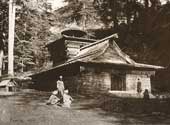|
|
| Old bond |
On petitions filed by two air vice-marshals of the Indian Air Force who were overlooked by a Special Promotion Board in 2003, the Delhi high court recently quashed the promotions of four air marshals of the IAF who were cleared by this SPB. In an unprecedented judgment, the court ordered a fresh SPB within four weeks to reconsider these cases. While doing so, the high court is reported to have observed that ?the treatment meted out to the petitioner is a classic case of indifference, high-handedness, arbitrariness, irrationality and amounts to colorful exercise of powers and manipulations to deny promotions to a meritorious officer?.
Considering that the SPB selects officers for three star rank appointments and that the SPB itself consists of the air chief and five of the seniormost air marshals in the IAF, any aspersions or doubts cast on its objectivity must have profound repercussions far beyond the boundaries of personalities and policies. They strike at the very heart of the value system of the profession of arms steeped in the ethos of duty, honour and country. At another level, this reflects equally poorly on the supposed system of checks and balances as the SPB?s recommendations are vetted at the ministry of defence, at both the bureaucratic and ministerial levels, before being approved by the appointments committee of the cabinet. The severe indictment by the court therefore must be seen as a rap on the knuckles for the entire system, rather than for any service or individual.
This is not the first time that officers of two star rank have knocked at the doors of the judiciary. Even three star rank appointees have done so in the past. Nor is the problem restricted to any one uniformed service. The dismissal of a serving chief some years ago was prompted by differences relating to appointments. At the time, enough was published in the press to indicate how the bureaucratic and political system had been manipulated to ensure this particular chief?s elevation in the first place.
Over a decade ago, retirement rules were violated by appointing someone as chief a day before the vacancy actually fell due. Then press comments indicated that there were high-level interests for paving the way in future for a relative. Subsequent events validated these suspicions. Recently, another official of three star rank had to be compulsorily retired when the press published his letter to a political leader seeking help. He too was aspiring to be positioned for the chief?s slot. These instances readily come to mind because of the media attention they attracted. Undoubtedly there are countless more.
The irony is that the present case was held under a new promotion policy where discretionary marks allotted to the board members (and they constitute the six senior-most members of the IAF) had been increased to 20 per cent from the earlier five per cent. The intention of this change, one is led to believe, was to ensure that merit and employability in the next higher rank would be better served by this new policy and judged by none other than the top professionals themselves. That the services need to move away from the age-old seniority-based policy to a purely merit-based one, especially at the star level appointments, has never been in doubt. Equally, it has never been in doubt that the will to do so at various levels for reasons other than professional has been lacking. That the IAF at least took the bold step to move somewhat towards this direction should have drawn kudos. Instead, it finds itself in the firing line for which it needs to introspect.
What is intriguing is that even before this judgment, the new policy introduced in 2002 was reversed in 2004. Such flip-flops relating to careers in the top echelons of the military point to arbitrariness. Matters only get more curious when it is reported that one of the air vice-marshal?s annual confidential report was tampered with at the level of defence secretary and that the latter had tendered an apology to the court. If this is how personnel policies, promotions and assessments at the highest levels of our military security structure are being managed, then the day is not far off when the entire edifice crumbles. It will then be too late, as building institutions like the armed forces takes tens of decades of selfless leadership and sacrifice.
One often hears the lament that the phenomenon of military officers taking recourse to civil courts is recent and has rarely happened in the old days. One can guess at some of the causes. First and foremost, it is archaic to have a ministry of defence sitting as a super headquarters over the military headquarters, with no military officers in its staff. Making service HQ part of the MoD continues to be resisted. We still believe that modern armed forces, with all that the so-called ?revolution in military affairs? entails, can still be controlled and run by generalist administrators. But the department of research and development in MoD is headed by a professional. One can only quote from the Kargil review committee report which said, ?India is perhaps the only major democracy where the Armed Forces Headquarters are outside the apex government structure. Most opposition to change comes from inadequate knowledge of the national security decision-making process elsewhere in the world and a reluctance to change the status quo and move away from considerations of parochial interest.?
There is as yet another dimension. It may be simplistic to conclude that the days of the ?officer and gentleman? are gone when officers lived by the dictum of the country first, followed by the wellbeing of those they commanded, with their own welfare of least concern. In such an ethos, quibbling for one?s own promotion, even if justified, was not the done thing. For these leaders, it was far more honourable to part with dignity. After all, mottos of military formations are not hollow statements; they are to be defended with life and limb. Glory, honour, dignity, valour and sacrifice are some sentiments drawn from these mottos. Mercifully, much of this ethos at the field levels remains intact. The cracks, when they do appear, are at the higher echelons and may well be indicative of a system that is archaic and not in keeping with the dynamics of modern militaries. This perception appears credible when one finds examples of an irreversible breakdown of the sacred bond between leaders and the led.
That the services must be led by the most meritorious and deserving should never have been in doubt. But for as far as one can remember, it is seniority that counts. Seniority that was gained when cadets were commissioned. Seniority that remains unaltered even decades later when some have mastered the art of war and leadership through the temples of fire, and others have mastered the dubious culture of developing contacts and godfathers in the innumerable corridors of power. The answer does not lie in setting up special tribunals to look at defence cases; it lies in declaring policies that reward merit, excellence, experience, selfless leadership qualities and, above all, ability to fill specific assignments. Choosing the right person for the job must be the sole guiding criterion irrespective of how many must be passed over. Once such policies are formulated and implemented fairly and transparently, they will not only find acceptance, but the necessity for tribunals and legal recourse will be a thing of the past. But this calls for sacrifice from those who will have to surrender the power of patronage and those waiting in the seniority queue for their turn.
We have a prime minister who is a technocrat of international standing, who recognizes the necessity of professional management. Addressing the combined commander?s conference a month ago, he said that recent military campaigns had demonstrated the pervasive impact of the revolution in military affairs and that this emphasized that technology and strategy were mutually interactive. Indeed RMA itself is a blend of technology and innovative leadership, resulting in dramatic changes in operational doctrines and concepts. While technologies can be developed and bought, innovative leadership has to be carefully groomed and nurtured. One hopes that the severe indictment by the Delhi high court is warning enough that our approach to nurturing military leadership is not in tune with demands of the ongoing revolution in military affairs.











